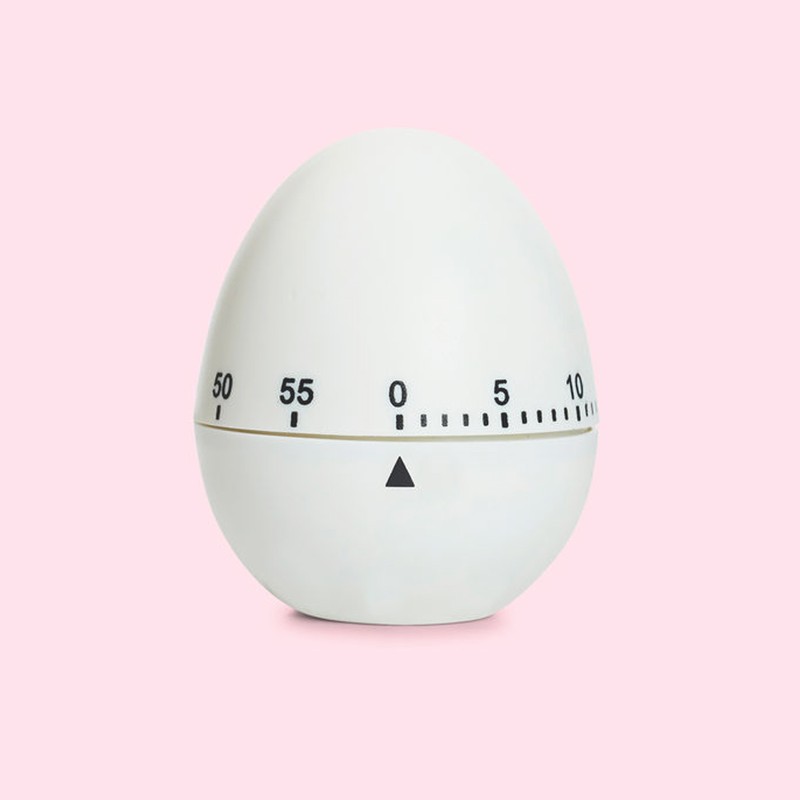Everything You Need To Know About The Menopause
Changing The Conversation
Menopause – when a woman stops ovulating – is the most natural thing in the world, but confusion around the subject, combined with unhelpful stereotypes, has served to demonise it. Although we’re now much more open about the realities of childbirth and post-natal depression, there’s still a secrecy shrouding ‘the change’, which means many women are unprepared. According to a 2017 survey conducted by the British Menopause Society (BMS), three quarters of women said the menopause had life-changing consequences and over half said it negatively impacted their lives. Despite this, a third of women surveyed hadn’t tried anything to reduce or prevent their symptoms. The burning question is, why?
Kathy Abernethy, menopause specialist nurse and author of the book Menopause: The One-Stop Guide, says that – despite plenty of information and advice available on the net, from menopause cafés to online forums) – deciphering what really works is another matter, and people are often left feeling in the dark. "Women don’t always know what to expect when it comes to the menopause, with partners too feeling helpless to offer support,” she says. “I encourage my patients to seek evidence-based information and explore the options that are right for them."
Put simply, we’re just not talking about the menopause enough. But Dr Bella Smith, a GP specialising in women’s health, is hopeful that as women are becoming more informed about symptoms, they’ll feel more comfortable discussing their effects with friends and partners. “If you know what is happening in your body and why you’re feeling a certain way, things can seem less scary. Being forewarned about the menopause is certainly being forearmed. There are so many fantastic websites, articles, podcasts and blogs that women can look to for information now.”
Getting The Terminology right
The menopause is the last period you ever have, but this only becomes clear retrospectively. A woman is described as post-menopausal if she’s over 50 and hasn’t had a period for one year, or is over 45 and hasn’t had a period for two years. If you’re under 45, however, this diagnosis may not be as clear-cut, as there can be other reasons why periods stop in younger women.
Perimenopause is the time before your periods stop, when hormonal changes start and symptoms often occur. This can last up to ten years, which means symptoms may well start manifesting in your mid- to late-thirties, although it most commonly begins when women are in their early- to mid-forties. Physical symptoms include: fatigue, erratic periods, hair loss, palpitations, hot flushes, night sweats, vaginal dryness, weight increase, loss of libido, headaches, joint pain and dry or itchy skin. There are also mental health implications to consider: anxiety, depression, mood swings, insomnia and memory loss.
Unfortunately, perimenopause often strikes at a time of life when women are juggling a lot of plates, which can mean symptoms get overlooked. As Dr Smith says, “The women I commonly see in surgery are extremely busy. They’re usually the lynchpin of families – running busy households, holding down successful careers, looking after children and often with elderly parents. It’s not uncommon for women to put themselves and their own health last.”
Debunking HRT Myths
HRT is neither necessary nor suitable for everyone but, when prescribed appropriately it can be life-changing – especially when it comes to osteoporosis prevention. Despite being lambasted in the past, recent research has put HRT squarely back in favour, with NICE advocating wider use of hormones in symptomatic women and many women’s health experts declaring that the benefits outweigh the risks. Here are a few below:
Kathy Abernethy: “Although women may explore other options, HRT remains the most effective treatment for symptoms of the menopause, easing them substantially. It’s low-risk for most women starting it at or around the time of the menopause but treatment should always be unique to the individual.”
Dr Louise Newson: “If you’re taking HRT and are under 51, then you won’t have an increased risk of breast cancer, regardless of the type of HRT you’re taking. Any risks of HRT are only relevant to those women who are over 51-years-old. This risk is similar to the increased risk of breast cancer you have if you’re overweight or drink around two glasses of wine a day. Any risk associated with breast cancer is reversed when you stop taking HRT.”
Dr Rosemary Leonard: “For post-menopausal women in their 50s, HRT can be a really good option for helping to prevent mood swings and keep bones strong, but it’s important to check the symptoms are due to the menopause and not an underlying issue such as depression.”
If you’re taking HRT, you should be assessed by your doctor at least annually, and must always tell your GP or menopause specialist if you’re taking any over-the-counter medication such as the herbs listed above.
Healthy Eating For The Menopause
Unfortunately, it’s a scientific fact that, as you get older, your metabolism slows, so you need fewer calories to maintain the same weight. For this reason, you may need to be more mindful of portion sizes, frequency of meals and snacking. Keeping a food diary for a day or two can highlight where your weak spots are in the day and also help you track your calorie intake.
Emma Bardwell, nutritional therapist and women’s health specialist, suggests aiming for food choices that are nutritionally dense, “Good quality carbs keep blood sugar levels stable, protein (plant and lean animal) fills you up and lots of fruit and vegetables will help meet your recommended 30g of fibre a day. I’d also add in probiotic foods to your diet if you don’t eat them already – fermented foods like sauerkraut, kefir, live yoghurt and kimchi – to help with digestive function and enhance immunity. Don’t forget healthy fats too, they’re crucial to hormone production and the absorption of fat-soluble vitamins A, D, E and K – think seeds, nuts, avocado and oily fish such as salmon or mackerel.”
Many women find that making simple changes to their diet can be very effective in helping manage menopausal symptoms. Here are Bardwell’s top tips:
- Eat more wholefoods than processed foods.
- Calcium helps support bone health. Dairy products, fortified plant milks, broccoli, green leafy vegetables such as kale and tinned salmon are good sources. Be aware that fizzy drinks contain phosphorous, which can accelerate the loss of minerals such as calcium and magnesium from bone.
- To boost heart health, eat more fish, especially oily fish like sardines, salmon, herring, mackerel and anchovies.
- Salt can raise blood pressure, which increases risk of heart disease and stroke. The NHS recommends no more than 6g a day (about a teaspoon).
- To help support your skin, keep vitamin C intake high (red peppers, dark leafy greens, kiwi fruit and broccoli) and add in vitamin E (nuts, seeds, olive oil, legumes and avocados).
- For mood, foods containing tryptophan such as turkey, oats, sesame, soya beans and sunflower seeds may help. Tryptophan is converted to serotonin in the brain, which can lift mood and help promote better sleep.
- Some women find alcohol, caffeine and spicy foods make hot flushes worse, especially when consumed at night. Alcohol can also increase fatigue, anxiety and depression.
- Phytoestrogens are oestrogenic compounds that may help keep hormones a little more in balance. They’re found in soya milk, linseeds, tofu, tempeh, miso, pumpkins seeds, sesame seeds, sunflower seeds, celery, rhubarb and green beans.
Staying Active
Claire Finlay, Founder of Transition Zone, promotes exercise to her female clients as a way of helping to boost mood, tackle stress, reduce anxiety and improve sleep – all areas impacted by the menopause. “Never has there been a more important time to keep on top of fitness levels than for women in their 40a and over,” she says. “Declining oestrogen levels mean fat tends to get stored around the tummy, which exercise can really help keep at bay. I recommend a mix of cardio to keep metabolism fired up and resistance training to turn the body into a fat torching machine.”
Here’s Finlay’s guide to making exercise work for you:
-
No matter what your age, the key is to be consistent. Treat your fitness sessions as you would a social event or a work meeting. Once in the diary, see them as something that can’t be moved.
-
Aim to exercise three times a week.
-
Weight-bearing exercise such as walking or jogging will keep you mobile and help your bones stay strong, but don’t be afraid to take it up a notch. Lifting weights increases androgen levels (i.e. testosterone) which deteriorate with age and are important for mood, libido, energy and muscle mass.
-
It’s not uncommon for self-confidence to take a knock around the menopause, so make sure you enlist the advice of a good personal trainer or join a studio that offers small classes and plenty of one-to-one guidance.
-
The menopause can play havoc with mood and anxiety levels. Yoga is a great way to connect with your mind and body, and feel more centred and calm.
-
Integrate movement into your daily life wherever you can. Walk up escalators; use the stairs; take a stroll at lunchtime.
-
Lastly, enjoy your fitness time. There are so many different classes and approaches these days, take the time to find one that works for you.
Knowledge Is Power
Understanding what lies ahead could make a huge difference to your experience. If unexplained changes are impacting your wellbeing, it could be time to talk to your GP or a menopause clinic – most surgeries have a doctor specialising in menopause, ask to see them when discussing your symptoms.
If you talk to a healthcare professional who doesn’t seem to be listening, get another opinion. No woman should have their health concerns diminished; we all need to feel empowered enough to feel heard. As Dr Smith says, “There’s absolutely no need to feel embarrassed. The more open and honest you are, the easier it will be to get the correct advice and treatment.”
Some useful resources to know:
Menopause Matters: A website covering all things menopause, including an online forum where you can research, discuss and ask questions.
The British Menopause Society: A brilliant source for factsheets on everything from CBT to HRT.
The Daisy Network: An online support for women going through premature ovarian insufficiency (premature menopause).
DISCLAIMER: We endeavour to always credit the correct original source of every image we use. If you think a credit may be incorrect, please contact us at info@sheerluxe.com.






